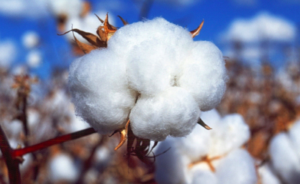Our Printing Inks: An Overview
ATI Textile is proud of our partner mill, Sungmin Textiles, and the achievements they have made in digital printing. Today we will give an overview of their cutting-edge printing inks which make our products of the highest caliber. In 2008, Sungmin Textiles obtained their first digital printing machine, establishing themselves as an industry-leader in this technology. Digital printing has innumerable benefits, such as higher print and color accuracy as well as lower rates of water and energy consumption. Equally as important as the digital printing machinery is the ink used, as this can drastically change the quality of the finished product. Sungmin recognizes this and has invested in the highest quality inks to ensure the best finished product possible for their customers.
What makes our inks better?
The inks Sungmin uses to print our products were developed by Epson in collaboration with experts in the digital printing and textile fields to allow precision, reliability and durability of fabric prints. Sungmin uses three different types of inks – acid, reactive, pigment – to provide the highest quality on any fabric. See below for more detail on each ink and their specific uses.
Acid Inks
Used on wool, silk and PA fabrics with proper preparation. Drying is easy and dried fabrics can be stored before steaming. Specific washing treatments are performed according to the type of printed fabric to eliminate unfixed ink.
Reactive Inks
Used on cotton, viscose, linen and other cellulose fabrics, as well as silk and wool. Drying is easy and dried fabrics can be stored before steaming. Special care is taken to ensure the steam has the proper characteristics and will not damage the color: it is free of nitrogenous additives that create residue on fabric. Specific washing treatments are performed according to the type of printed fabric to eliminate unfixed ink.
Pigment Inks
Used on cotton, viscose, linen and other cellulose fabrics and their blends with PES and PA fibers. Post-print drying is carefully calibrated to properly initiate the resin cross-linkage process, and the inks contain a binding agent which makes the pigment resistant to wetting but not to washing with detergents. Color-fasteness is then ensured by post-treating the fabric with specific products.
Human-Ecological Impact
The inks not only produce beautiful end results, but also limit our negative impact on the environment and on people. The ink’s innovative vacuum bag packaging and 100% printing and color accuracy limits waste and therefore reduces energy and water consumption. All of Sungmin’s inks have earned certifications from Bluesign and OEKO-TEX, ensuring they meet strict human-ecological standards for chemicals, consumer safety and environmental impact. The reactive inks have also been approved by ECOCERT, certifier for the Global Organic Textile Standard, meeting the social and environmental criteria for organic fibers.

Sources: Sungmin Textiles, OEKO-TEX, bluesign, Global Organic Textile Standard, Kornit Textile Glossary


